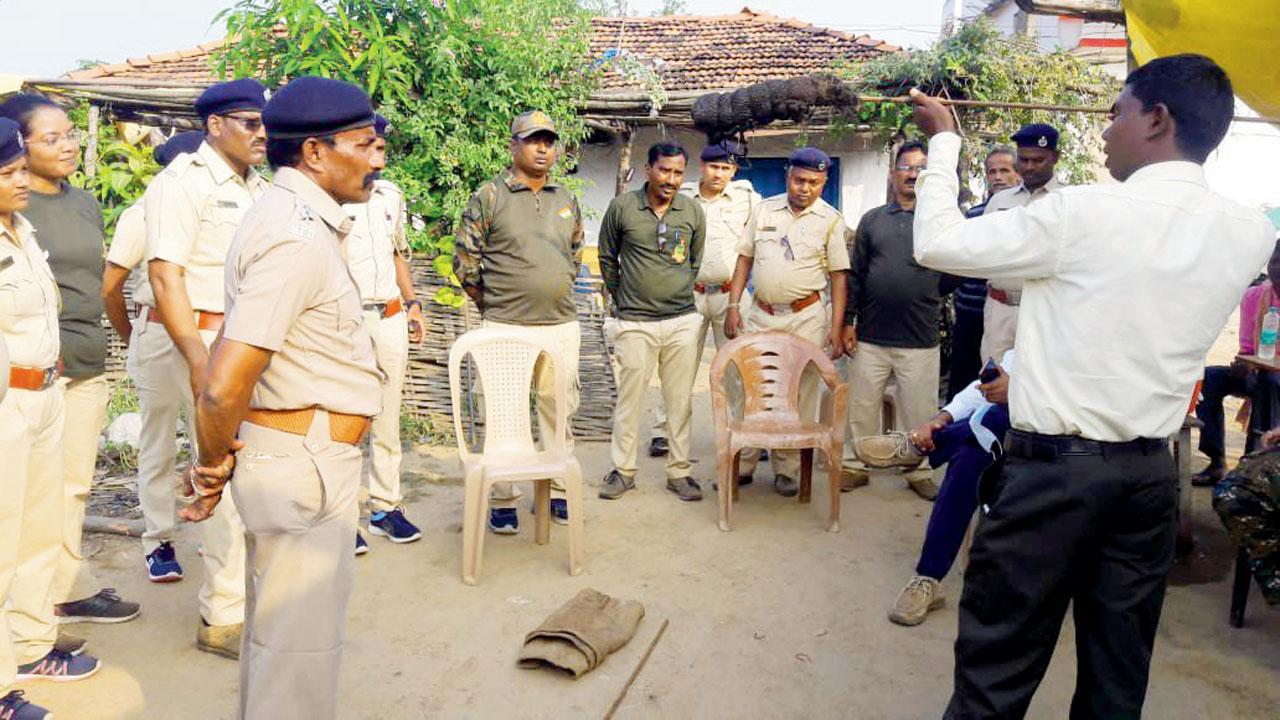Experts from West Bengal are training Gadchiroli forest teams to keep the animals off human habitats; pachyderms recently entered the state

State forest staffers being trained in Gadchiroli district
An elephant herd that recently entered Maharashtra from Chhattisgarh and seemed to have settled in Gadchiroli has walked to a different location about 30 km away, prompting forest officials to seek help from West Bengal to avoid man-animal conflicts.
ADVERTISEMENT
Elephant expert Sagnik Sengupta, co-founder of NGO Stripes and Green Earth Foundation, who has been working in south Bengal and Madhya Pradesh will train forest teams from Gadchiroli on monitoring the pachyderms. The herd of about 25-30 elephants had stayed put in a particular place in the district since October 21.
Sengupta said his team was asked by Principal Chief Conservator of Forest Sunil Limaye to visit the site. “We have given a field report for short and long term action points. Now our team of 4 to 5 people will be going there out of which around 3 people will be there for continuous monitoring,” he said.
Asked about the kind of help his team will provide to the forest department, Sengupta said, “We shall be doing capacity building training for the forest department and villagers in the area, to try to reduce conflicts. We will also teach them how to drive away elephants in case they are nearing human habitats and do awareness programmes.”
The team also plans to monitor the movement of elephants manually by following the herd, particularly when they are outside forested patches and map the routes with reason for their movement—if it is for food and water or just casual. The NGO is also not in favour of collaring as they feel it doesn’t work in India.
“It seems this herd was collared in Chhattisgarh but the collar fell off. Collaring needs to be done on the matriarch and doing that is not easy as tranquilising and holding the matriarch may make the herd go berserk. Collaring any other elephant other than the matriarch is easy but not fruitful,” said Sengupta.
By mid-January, the expert said, the herd might move either to Chattisgarh, where the chances are high, or towards Madhya Pradesh, considering its present movement. Sengputa added, “Definitely, the herd will move before summer to regions where water will be available. As this herd is from Dhamtari, chances are high that they will move back there as they will have access to water in Mahanadi.”
21 Oct
Date since when herd had stayed put at one location
 Subscribe today by clicking the link and stay updated with the latest news!" Click here!
Subscribe today by clicking the link and stay updated with the latest news!" Click here!







